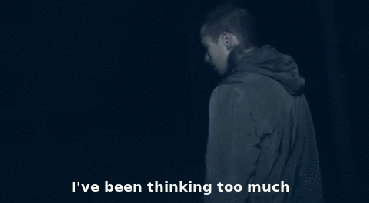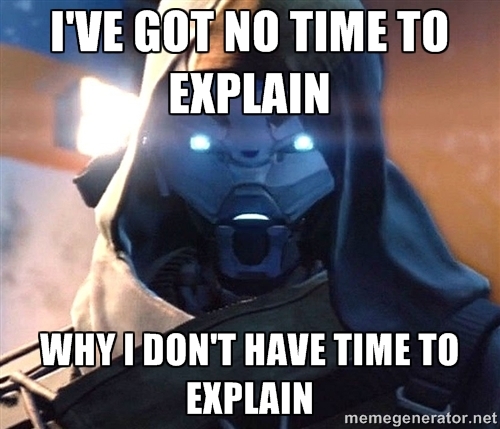I started out Professor Kopp’s How Writers Read course as a stubborn resistant reader. While writing out my reading inventory for my first assignment, it (for some reason) took me THREE HOURS to complete. Three. Hours. It wasn’t even because I was logging a bunch of books–It was the fact that I felt as though I needed to complete this reflection perfectly. I remember looking at my group mate Joe’s inventory of 100 or so books and feeling embarrassed by not going into the class as an avid bookworm. As I progressed in the class, I noticed that I was being used as an example and that people were looking to me. It felt incredibly rewarding at first, but it came with a price. After a while, I no longer wanted to be the superstar. All that I was doing was the required work for the course, and I was completing everything on time. I never truly thought that I was smart until I was told that I was. There was a severe lack of confidence in the beginning of the semester.
by not going into the class as an avid bookworm. As I progressed in the class, I noticed that I was being used as an example and that people were looking to me. It felt incredibly rewarding at first, but it came with a price. After a while, I no longer wanted to be the superstar. All that I was doing was the required work for the course, and I was completing everything on time. I never truly thought that I was smart until I was told that I was. There was a severe lack of confidence in the beginning of the semester.
At times, I was aggravated. Frustrated. Lacking motivation. Tired. So tired. I also learned what it was like to be triggered. I picked The Bell Jar by Sylvia Plath for our group which taught me a lot more than what was on the page. I couldn’t continue with the book because of how real it became and how much I resonated with it. As I started reading this book, I had finally received the help that I needed for years and pushed certain thoughts away. As I read deeper into the text, the words became too powerful. Thoughts were reappearing and taunting me, poisoning my mind as I was trying to cleanse it. I don’t regret the book that I chose, because it taught me that I am stronger than words on a page. It also taught me that I can live in harmony with the poisonous thoughts surrounding me while simultaneously filling up the cracks in the road I’ve been traveling with fresh asphalt. The fact that I felt so strongly because of a novel is a grand improvement on my own professional reading life, and I’m so fortunate that I can see it that way now instead of letting it crush me.

As I was learning completely new terms in class, I struggled to understand them at first, especially while trying to read as quickly and thoroughly as possible while applying terms I’ve never heard of. Starting off with the very first text, Demian, I was surprisingly pleased with how much I was enjoying the book. I had no idea what was in store as we discussed the book in class, but I apparently got the hang of things pretty quickly. I still struggled a bit with value graphs even with the last book of the class, but I did grasp the concept a little bit better as the weeks went along. It’s not easy to get the value graphs exactly right, and Professor Kopp even said that we won’t, but grappling with value graphs was a rewarding learning experience. I believe that that was probably one of the most challenging things about the course even though it was such a small part of it.
I feel as though my second Oscar Wao blog is the best representation of my progress in the course. I put my all into every word and really enjoyed the text which make blogging a smooth process. I made sure to connect my blogs to my own previous posts and also the posts of my group members at the end of the course. This was a significant improvement for me as opposed to just spitting out ideas and not connecting them. Once I started linking other blog posts, I started to reflect on myself as a writer and a close reader and I started to really see those improvements, which was very exciting!

I found that intertextual codes were the most interesting and fun aspect of the course. Of course, as I was introduced to these foreign terms, I struggled to apply them to the books. I remember with our first book, Knulp, I was anxiously taking notes as I read because I was afraid that I would miss something if I didn’t read EXTREMELY close. I’m thankful that we were introduced with the terms after the class read Demian so that everything was a lot less stressful. The class would have been chaotic if we hadn’t done so. I was having a lot of fun with this blog connecting Knulp to Demian as both were written by Herman Hesse. I focused on the cultural code for this blog in particular, and it was very interesting to see how Hesse uses the same character traits in different books. The cultural and proairetic codes were always the easiest to find in the books that I was reading, but once our group read Every Day, I noticed that the book was plentiful with codes and that one character was embodying multiple codes.
 I went on multiple tangents when finishing up Knulp, trying to get all of my thoughts out there at once, afraid that I was going to miss something. Looking back at the final blog discussing the narrator and addressee of Knulp, I realized that I could have been even more specific with half as many words. I finally grasped the concept of narrator and addressee in my final blog on Oscar Wao. Everything in the class led up to this interesting text which ultimately dealt with the mystery of the narrator and whether or not he was reliable. I go into more detail in section four of my annotated bibliography.
I went on multiple tangents when finishing up Knulp, trying to get all of my thoughts out there at once, afraid that I was going to miss something. Looking back at the final blog discussing the narrator and addressee of Knulp, I realized that I could have been even more specific with half as many words. I finally grasped the concept of narrator and addressee in my final blog on Oscar Wao. Everything in the class led up to this interesting text which ultimately dealt with the mystery of the narrator and whether or not he was reliable. I go into more detail in section four of my annotated bibliography.
One of my biggest achievements in the course is finding out what I read for when I grapple with any text. With every single text that I have read thus far in my life time, I have always read for the sake of getting it right, whether “it” meant the overarching message of the text, the plot, the symbolism, etc. I learned that reading for “getting it” ironically doesn’t make you get it. Working with the methods of the text made reading to “get it” disappear. I’ve learned to to put so much pressure on myself when reading and to let the text speak for itself instead of fogging up my own mind with my doubts and insecurities. I will now be reading for learning; opening up my mind to further my knowledge of the terms used in this class and what I am capable of as both a reader and a writer.
Core Values:
1. Writing Arts students will demonstrate understanding of a variety of genre conventions and exhibit rhetorical adaptability in applying those conventions.
2. Writing Arts students will understand theories of writing and reading and be able to apply them to their own writing.
3. Writing Arts students will demonstrate the ability to critically read complex and sophisticated texts in a variety of subjects.
The first writing arts core value states that students will demonstrate their knowledge on a variety of genres. In terms of our blogging in the course, this dealt with part 2 of each of our blogs dealing with both form and genre. Other than fiction, young adult, nonfiction, fantasy, horror, and other common genres, I had no idea that there were more obscure sub-genres that some texts could fit into. One example of a sub-genre I found was magical realism in Oscar Wao, which I discussed in part 2 of my annotated bibliography. The second writing arts core value deals with understanding theories of both writing and reading and the application of those theories. I can say with confidence that I have meticulously applied everything that I have learned in every single one of my blogs while also becoming familiar and acquainted with the terms I was using as the class moved along. In the beginning of the class, I thought the terms were far beyond my comprehension, but practice most certainly made perfect when blogging about them.
Most importantly, the third writing art’s core value deals with understanding complex and sophisticated texts. In other words, it is required that students understand the various parts of a text, and they must be able to relate to those parts. This mode of thinking involves a shift from critical thinking to becoming authentically submissive with a new point of view on a reading after everything is understood. Critical thinking is the first step, and once we identify as authentically submissive, we are able to enter the text on a new and deeper dimension without completely giving up our own selves as readers. We see the text for what it is, and we have a choice as to whether or not it impacts us on a certain level. I believe that I have improved dramatically on the third core writing arts value in both my reading and writing because of this course. Being authentically submissive has a degree of control while also accepting what’s on the page in front of us, hence the submissive aspect. I have transcended what I thought I was capable of as a writer, and now I have a new found love of reading that I never thought I would reach. I am looking forward to applying the methods of How Writer’s Read throughout the rest of my undergraduate and post graduate adventures.
PEACE!

Comments I have made: #1, #2, #3, #4, #5, #6, #7, #8
Image Credit: #1, #2, #3, #4, #5







 I went on
I went on 








